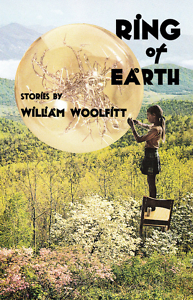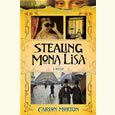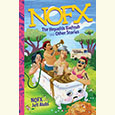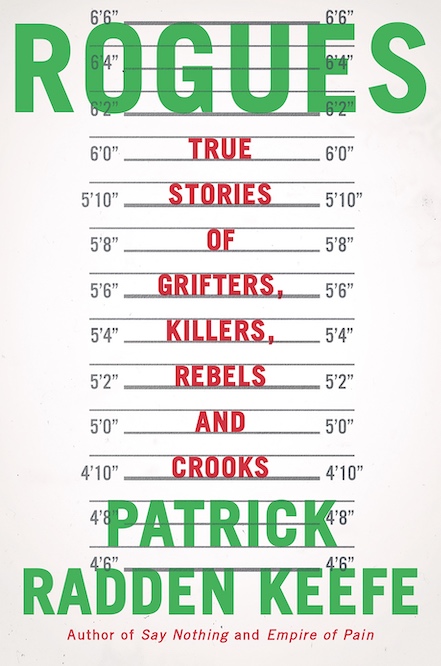Holders of Secrets
Nature bears the burden of memory in William Woolfitt’s Ring of Earth
“What the Beech Tree Knows,” the arresting opening story of William Woolfitt’s collection Ring of Earth, brings us into the “hiding room” of its narrator’s family secrets. Memories of his troubled parents have become tough to access, but he tells us, “I get more of [these memories] when I go among the trees they knew.”

Early in the narrator’s life, one particular beech tree became “a holder of secrets,” welcoming this vulnerable child, enclosing him within its thick branches “until I fade from view.” We travel inward with him, toward the deepest truths and mysteries of his family’s past. The heart of the tree doubles as a chamber of memory and becomes inextricable from the narrator’s identity: “The beech’s hollow space is the shape of me if I tuck one arm like a wing, if I stretch the other overhead.”
Raised in West Virginia and now living in Cleveland, Tennessee, Woolfitt is the author of several books of poetry, and Ring marks his debut full-length fiction collection. Woolfitt draws on a poet’s command of language to create stories that engage the ways potent experiences come to be stored in nature, historical record, and small moments of personal exchange.
Several stories pair intimate personal experiences with much larger events of history, exploring moments of resonance and redress. In “Wax Museum,” a young boy’s family vacation leads him to mingle fraught family conflicts with a tourist-trap depiction of John Brown’s anti-slavery rebellion.
“The Labor of Her Hands” distills the enormity of harm inflicted on a slavery-era plantation in a brief encounter between the plantation owner’s daughter and “Indian Nan,” an elderly enslaved woman working in the kitchen. Nan fields the daughter’s personal questions about her past (and the plantation’s past), skillfully protecting her own agency and privacy as she works.
 “Bad Blood” is a flash piece written in the collective voice of the children who were consigned to the Virginia State Colony for Epileptics and Feebleminded, a state-run institution brought to greater public attention in recent years through the writing of poet Molly McCully Brown. Woolfitt’s story emphasizes the larger social role the colony played. As the children of poor families became disproportionately targeted for involuntary commitment — “We were running from the welfare agents and the school supervisors, the district nurses and the sheriff’s deputies who swept through the mountains, looking for us.” — their suffering served to sanitize the image of the community: “We had been the rugs they beat to keep their bloodlines rich and clean.”
“Bad Blood” is a flash piece written in the collective voice of the children who were consigned to the Virginia State Colony for Epileptics and Feebleminded, a state-run institution brought to greater public attention in recent years through the writing of poet Molly McCully Brown. Woolfitt’s story emphasizes the larger social role the colony played. As the children of poor families became disproportionately targeted for involuntary commitment — “We were running from the welfare agents and the school supervisors, the district nurses and the sheriff’s deputies who swept through the mountains, looking for us.” — their suffering served to sanitize the image of the community: “We had been the rugs they beat to keep their bloodlines rich and clean.”
“Bad Blood” and “What the Beech Tree Knows” both exemplify the greatest strength of this collection: nature’s power to store our memories, even when we are too overwhelmed to carry them. “Velvet Knob” traces the farm life of a married couple, merging the features of that land with the human characters themselves, in variations of lines like these: “The hog farmer is the saw briars and blackjacks and scrub pines that spring up faster than he can clear them from the rocky hill field. He is honey in the crock that his wife hides from him, that he sneaks his finger into when he wants to steal a lick.”
Most of these stories tie the fates of their characters to the state of the land and the wildlife around them. “Fire Season” links its protagonist’s terminal illness with the burning of red spruce forests outside his window. In the memorable, atmospheric story “The Sinks of Gandy,” a woman from the 1830s stalks an eastern elk with the same close attention she brings to her complicated home life.
The stories found in Ring of Earth respect the complexity of memory — both communal and personal. By skillfully engaging knowledgeable depictions of nature and his poetic sensibility, Woolfitt evokes a secret world of memory without becoming reductive or sentimental.

Emily Choate is the fiction editor of Peauxdunque Review and holds an M.F.A. from Sarah Lawrence College. Her fiction and essays have appeared in Mississippi Review, storySouth, Shenandoah, The Florida Review, Rappahannock Review, Atticus Review, Tupelo Quarterly, and elsewhere. She lives near Nashville, where she’s working on a novel.


